COVID-19 Update: April 27, 2020
COVID-19 update for Monday, April 27 as of 3:30 p.m.
Pennsylvania Update
Department of Health
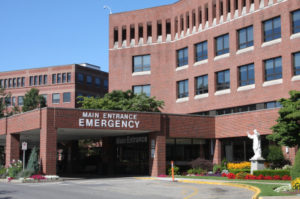 The Department of Health has issued guidance on the terms under which hospitals can begin performing elective procedures again and under which ambulatory surgical facilities may begin performing elective procedures again.
The Department of Health has issued guidance on the terms under which hospitals can begin performing elective procedures again and under which ambulatory surgical facilities may begin performing elective procedures again.
Department of Health Daily Briefing
- The number of newly reported cases has declined for the third consecutive day.
- 2394 positive tests have been among health care workers and 7037 have been among residents of 441 long-term-care facilities.
- 2799 people are currently hospitalized for COVID-19 and 615 of them are on ventilators.
- 47 percent of the state’s hospital beds and 40 percent of its ICU beds are currently unoccupied and nearly 70 percent of its ventilators are not in use.
- Secretary Levine discussed the criteria for the state to reopen regions. She cautioned against too great a focus on the number of cases per 100,000 population and explained that to reopen, regions also would need a certain level of testing capacity, enough personal protective equipment, have enough hospital staff to handle any surge in cases, and not be operating under crisis standards of care.
- The state is doing well in finding more testing materials for the state lab and Secretary Levine said more needs to be done to make this supply chain more reliable and to do the same for others that perform tests as well.
Governor Wolf
The Wolf administration has issued a news release elaborating on the data-driven and qualitative measures that will be used to determine when individual regions of the state will be permitted to reopen.
Federal Update
Department of Health and Human Services
 Last Friday HHS deposited its second tranche of CARES Act funding in hospitals’ bank accounts. We have contacted HHS to inquire about the specifics of the funding formula, whether there are additional future attestation requirements, the timing for the next round of payments, and more.
Last Friday HHS deposited its second tranche of CARES Act funding in hospitals’ bank accounts. We have contacted HHS to inquire about the specifics of the funding formula, whether there are additional future attestation requirements, the timing for the next round of payments, and more.
In the meantime, providers that received Provider Relief Payments in either round of funding should visit the CARES Act General Distribution Portal, where you will be able to provide data that HHS may use to calculate payment distributions from the Provider Relief Fund. (Other useful resources: the CARES Act Provider Relief Fund web page and an FAQ on the General Distribution Portal. Also, please note: the General Distribution Portal is not the same as the Attestation Portal.)
Specifically, the portal is collecting the following four pieces of information:
- a provider’s “Gross Receipts or Sales” or “Program Service Revenue” as submitted on its federal income tax return;
- the provider’s estimated revenue losses in March 2020 and April 2020 due to COVID;
- a copy of the provider’s most recently filed federal income tax return; and
- a listing of the tax identification numbers any of the provider’s subsidiary organizations that have received relief funds but that DO NOT file separate tax returns.
In addition, providers can submit separate applications for CARES Act funding for any additional entities that received Provider Relief Fund payments and that also filed a separate tax return for 2017, 2018, or 2019. See the provider relief fund page and FAQ for further details.
- HHS has updated its CARES Act Provider Relief Fund web page. Included is a new update on the distribution of remaining funds designated for providers in the CARES Act and what providers need to do to receive their share of these funds. It also reminds providers that they must agree to the terms and conditions of this funding through the CARES Act Provider Relief Fund Payment Attestation Portal.
- HHS’s Health Resources and Services Administration (HRSA) this afternoon opened a web portal through which providers can submit claims for payment for COVID-19-related services they have provided to uninsured patients. As described in an HHS news release,
Health care providers who have conducted COVID-19 testing or provided treatment for uninsured COVID-19 individuals on or after February 4, 2020 can request claims reimbursement through the program electronically and will be reimbursed generally at Medicare rates, subject to available funding. Steps will involve: enrolling as a provider participant, checking patient eligibility, submitting patient information, submitting claims, and receiving payment via direct deposit.
To participate, providers must attest to the following at registration:
- You have checked for health care coverage eligibility and confirmed that the patient is uninsured. You have verified that the patient does not have coverage such as individual, employer-sponsored, Medicare or Medicaid coverage, and no other payer will reimburse you for COVID-19 testing and/or care for that patient
- You will accept defined program reimbursement as payment in full.
- You agree not to balance bill the patient.
- You agree to program terms and conditions and may be subject to post-reimbursement audit review.
The new web page also includes information about covered services, claims submission, and claims reimbursement.
Centers for Medicare & Medicaid Services
 CMS has announced that it is re-evaluating the amounts it will have available for Part A providers with new and pending applications under its Accelerated Payment Program and is suspending its Advance Payment Program for Medicare Part B suppliers effective immediately. Now that Congress has appropriated $175 billion for the grant-style “Provider Relief Fund,” CMS is shifting away from the cash advance approach of the Advance and Accelerated Payment Programs. Part B suppliers will no longer be able to apply for the Advance Payment Program and CMS will be re-evaluating the amounts available for Part A providers with new and pending applications under the Accelerated Payment Program. Previously, Part A and Part B providers were able to request an advance on Medicare fee-for-service payments up to a maximum value of six months’ worth of payments. See CMS’s news release explaining its shift in approach and an updated fact sheet on the Accelerated and Advance Payment Programs.
CMS has announced that it is re-evaluating the amounts it will have available for Part A providers with new and pending applications under its Accelerated Payment Program and is suspending its Advance Payment Program for Medicare Part B suppliers effective immediately. Now that Congress has appropriated $175 billion for the grant-style “Provider Relief Fund,” CMS is shifting away from the cash advance approach of the Advance and Accelerated Payment Programs. Part B suppliers will no longer be able to apply for the Advance Payment Program and CMS will be re-evaluating the amounts available for Part A providers with new and pending applications under the Accelerated Payment Program. Previously, Part A and Part B providers were able to request an advance on Medicare fee-for-service payments up to a maximum value of six months’ worth of payments. See CMS’s news release explaining its shift in approach and an updated fact sheet on the Accelerated and Advance Payment Programs.- CMS has updated its FAQ on Medicare fee-for-service billing. In particular, the updated FAQ provided more specific information about use of the condition code “DR” and the modifier “CR” for claims for which Medicare payment is conditioned on the premise of a formal waiver.
- CMS has informed state governments that it will hold constant the inspection domain of the Nursing Home Compare site due to the prioritization and suspension of certain surveys during the COVID-19 emergency to ensure that the rating system provides fair information for consumers.
Centers for Disease Control and Prevention
- The CDC has updated its information for clinicians on therapeutic options for COVID-19 patients.
Food and Drug Administration
- The FDA has issued a news release reiterating the importance of close patient supervision for off-label use of anti-malaria drugs to mitigate the known risks of those drugs.
- The FDA will host a virtual town hall for clinical laboratories and commercial manufacturers that are developing or have developed diagnostic tests for COVID-19 on Wednesday, April 29 at 12:15 (eastern).
- The FDA has issued emergency use authorizations (EUAs) for two COVID-19 serology tests (here and here) and for a reagent to be used in such serology tests.
Occupational Safety and Health Administration
- OSHA has issued interim enforcement guidance on reusing disposable N95 filtering face piece respirators that have been decontaminated.
Resources to Consult
Pennsylvania Department of Human Services
Pennsylvania Department of Health
Centers for Disease Control and Prevention
(To receive this daily update directly, sign up for our mailing list at info@pasafetynet.org.)
 After a week of declines in the number of new COVID-19 cases, the daily case count has returned to its higher levels of one to two weeks ago.
After a week of declines in the number of new COVID-19 cases, the daily case count has returned to its higher levels of one to two weeks ago. The Pennsylvania Health Law Center has launched a “
The Pennsylvania Health Law Center has launched a “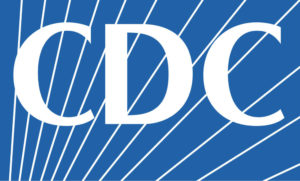
 The National Institute of Allergy and Infectious Diseases (NIAID), part of the National Institutes of Health, has shared its
The National Institute of Allergy and Infectious Diseases (NIAID), part of the National Institutes of Health, has shared its 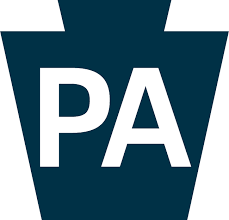 On Wednesday night Governor Wolf addressed the state about his plan to gradually reopen Pennsylvania and its economy. While the governor had previously announced some reopenings, he outlined general parameters for authorizing additional steps and further business activity.
On Wednesday night Governor Wolf addressed the state about his plan to gradually reopen Pennsylvania and its economy. While the governor had previously announced some reopenings, he outlined general parameters for authorizing additional steps and further business activity. DHS has written to the federal Centers for Medicare & Medicaid Services
DHS has written to the federal Centers for Medicare & Medicaid Services  The CDC has published information about
The CDC has published information about  Governor Wolf
Governor Wolf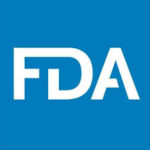 The FDA will participate in a
The FDA will participate in a  Today SNAP wrote to members of Pennsylvania’s congressional delegation to ask them to support new COVID-19 and economic relief legislation that was expected to include $75 billion for hospitals. See SNAP’s letter
Today SNAP wrote to members of Pennsylvania’s congressional delegation to ask them to support new COVID-19 and economic relief legislation that was expected to include $75 billion for hospitals. See SNAP’s letter  The Department of Health new daily case counts are now the sum of two figures: “confirmed” cases that have been determined by testing plus cases that have been ruled “probable” because of an individual’s symptoms and recent contact with someone who has a confirmed case of COVID-19.
The Department of Health new daily case counts are now the sum of two figures: “confirmed” cases that have been determined by testing plus cases that have been ruled “probable” because of an individual’s symptoms and recent contact with someone who has a confirmed case of COVID-19. Congressional leaders and the Trump administration have agreed to provide $75 billion for hospitals as part of a $484 billion COVID-19 and economic relief package. This $75 billion would be addition to the money from the CARES Act and would have the same parameters as the CARES Act money.
Congressional leaders and the Trump administration have agreed to provide $75 billion for hospitals as part of a $484 billion COVID-19 and economic relief package. This $75 billion would be addition to the money from the CARES Act and would have the same parameters as the CARES Act money. Governor Wolf today announced that he was extending his stay-at-home order through May 8, at which time the state may, depending on the status of spread of COVID-19, begin permitting some industries and businesses to resume operations while still observing social distancing guidelines. Pennsylvania’s liquor stores have begun curbside pick-up and online auto sales will be permitted to resume, with notaries doing their work online. Construction projects would be permitted to resume on May 8. The administration is exploring permitting some retailers to engage in curbside pick-ups but the governor acknowledged that this presented different challenges in different places. He said the reopening of the state’s economy would be regional rather than state-wide, that some things that may be realistic in Cameron County may not be feasible in Philadelphia, and that all reopening efforts would be contingent on the progress of the COVID-19 pandemic between now and May 8. He did not speak about anything involving health care other than to note that social distancing appears to have been effective in preventing the health care system from becoming overwhelmed at the height of the crisis.
Governor Wolf today announced that he was extending his stay-at-home order through May 8, at which time the state may, depending on the status of spread of COVID-19, begin permitting some industries and businesses to resume operations while still observing social distancing guidelines. Pennsylvania’s liquor stores have begun curbside pick-up and online auto sales will be permitted to resume, with notaries doing their work online. Construction projects would be permitted to resume on May 8. The administration is exploring permitting some retailers to engage in curbside pick-ups but the governor acknowledged that this presented different challenges in different places. He said the reopening of the state’s economy would be regional rather than state-wide, that some things that may be realistic in Cameron County may not be feasible in Philadelphia, and that all reopening efforts would be contingent on the progress of the COVID-19 pandemic between now and May 8. He did not speak about anything involving health care other than to note that social distancing appears to have been effective in preventing the health care system from becoming overwhelmed at the height of the crisis.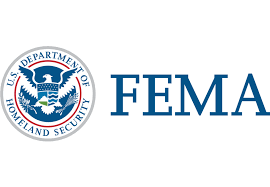 FEMA has published a
FEMA has published a 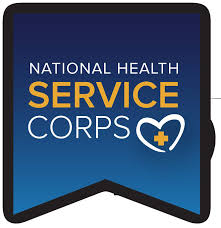 National Health Services Corps
National Health Services Corps Governor Wolf
Governor Wolf Yesterday President Trump announced the creation of the
Yesterday President Trump announced the creation of the  Department of State
Department of State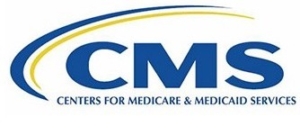 CMS has posted a
CMS has posted a 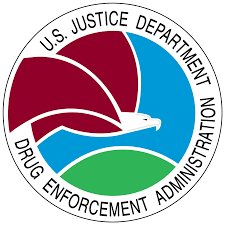 The DEA has published a letter that grants to the satellite hospitals and clinics of DEA-registered hospitals, under certain conditions, the
The DEA has published a letter that grants to the satellite hospitals and clinics of DEA-registered hospitals, under certain conditions, the